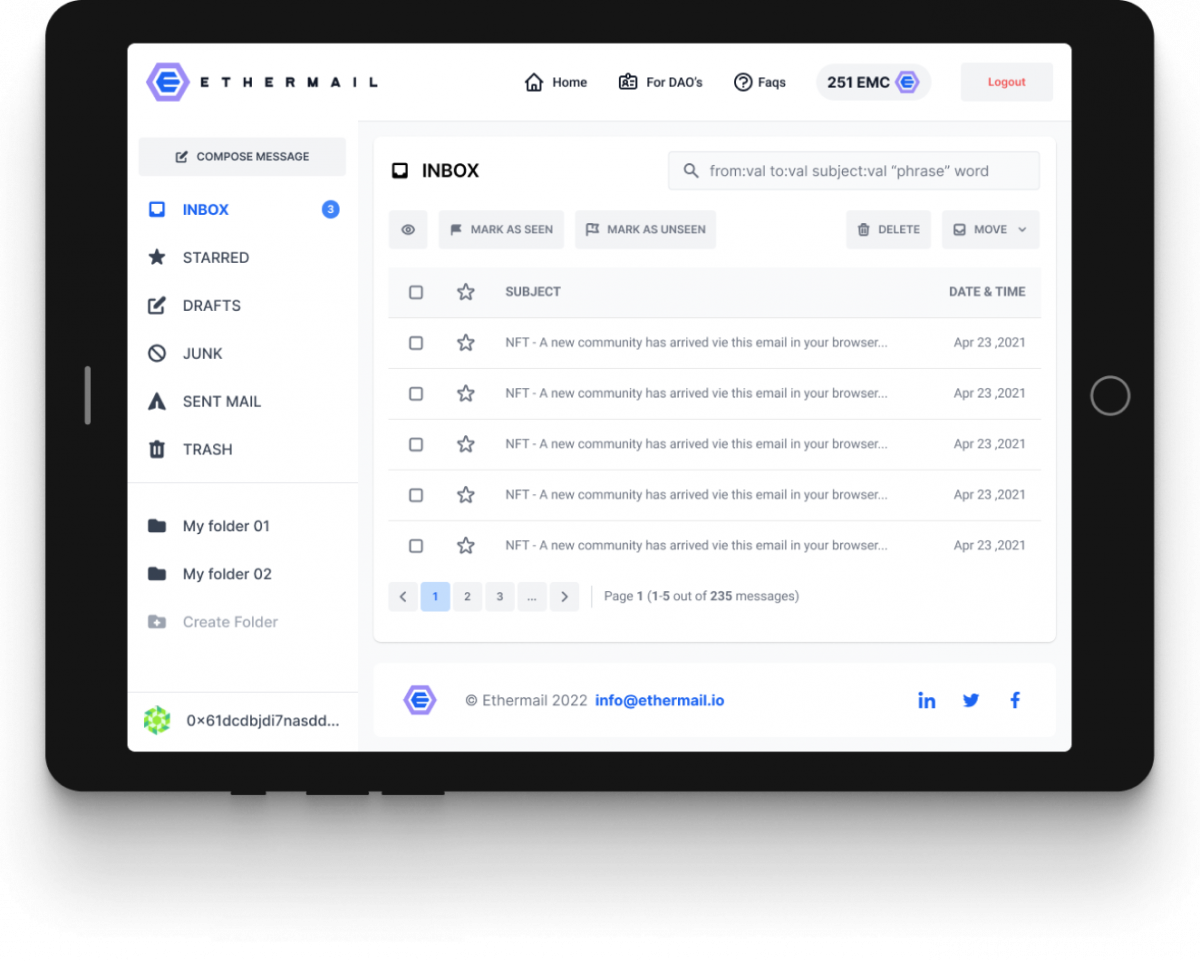A new Web3 email design aims to tackle NFT fraud

Fraud in Web3 is a problem to say the least. In the first six months of 2022, Web3 projects lost a total of $2 billion to hacks and other fraud schemes, according to a report by blockchain auditing and security firm CertiK.
Given that Web3 is still an emerging area, it is not surprising that a significant portion of these losses come from misuse of communications logistics in the NFT space. Hackers repeatedly target project Discords and fill them with malicious links; wallet interfaces have such a lousy track record of being used against NFT community members that companies encourage users to read the fine print before transacting.
Suffice it to say, it’s all a bit random. But it is precisely the lack of a coherent and secure communication device in the crypto and NFT space that the Web3 startup EtherMail aims to address.
Secure Web3 communication
Founded in late 2021 by Shant Kevonian and Gerald Heydenreich, the company aims to be the first Web3 email solution that sets a new standard for anonymous and encrypted wallet-to-wallet communication, according to a press release shared with nft now .
The service, which is still in beta testing, allows users to “claim” their Web3 email address on ethermail.io and access it via a popular email client of their choice, or by using EtherMail’s own client. To claim an address, users log in with their chosen wallet and sign a transaction agreeing to the service’s terms and conditions.

This email service, the company says, will help NFT project developers proactively reduce the risk of communications fraud by informing users of breaches and vulnerabilities in advance. EtherMail also enables self-updating mailing lists for distribution of newsletters based on updated smart contract data.
“Communication in this space is very fragmented, frustrating and overwhelming,” founder Kevonian explained in an email exchange with nft now. “Users’ wallet addresses are not notified of Web3 activity related to them, so they must check various channels to stay up-to-date with their digital assets. Sifting through thousands of spam messages and alerts on Telegram, Discord and Twitter is overwhelming. Given how often holders sell their cryptoassets and NFTs, there is a high risk of important information loss, both for users and projects. Users can benefit from blockchain-synchronized real-time information in their inbox, so they don’t have to worry about losing important information about their digital assets.”
Building a dynamic functionality into web3
The service, Kevonian added, can be used in several ways:
- DAOs can engage members with participation in governance.
- NFT projects can help as a whitelisting tool.
- Web3 projects can inform users about new product releases.
In particular, the company is introducing an “Earn2Read” model tailored to what EtherMail describes as a “mutually beneficial” relationship between advertisers and users.
Using a “paywall” feature, users can sign up for subscriptions from companies that want to advertise through EtherMail, and specify what kind of email content they’re willing to read in exchange for EtherMail’s native token, $EMT, which the company plans to launch early next year. Companies that want to send advertising to a user’s inbox will have to pay to do so, which the EtherMail team hopes will result in greater spam protection while “creating a framework for the email economy.”
The service currently supports Metamask and WalletConnect, and the company plans to integrate more soon.
Given the troubled state of crypto and NFT communications, it will be instructive to see how EtherMail and similar services build a more secure way for community members to communicate. Many point to the lack of security and fraud protection resulting from Web3’s decentralized nature as one of its significant downsides—advances coming from EtherMail are one attempt to address that very problem. It’s a potentially valuable area of focus that, if executed well, could save untold millions of dollars in fighting Web3 fraud.
























